By Glynn Wilson –
Editor and Publisher –
MOBILE, Ala. — Long-time activist and writer David R. Underhill, Associate Editor of the New American Journal, died in the Mobile Infirmary Medical Center of heart failure after a battle with a series of other health issues early Friday morning, November 8. He was 78.
A native of California who grew up in Idaho and had family in Washington State and California, Underhill arrived in Mobile in 1965 after graduating from Harvard where he worked for the student newspaper and was assigned to cover the city for The Southern Courier out of Montgomery, a weekly newspaper devoted to issues of civil and economic rights inspired by others at the Harvard Crimson since there was a consensus that newspapers in the South were not doing a very good job of covering the Civil Rights movement.
An archive has been posted online and is available here: The Southern Courier.
Throughout most of the paper’s short but important three-year run from 1965 through 1968, according to local historian Scotty Kirkland, Underhill was “the entire operation” in Mobile, writing stories, taking photographs, handling ads and subscriptions. He covered a number of important topics, including the War on Poverty, local and state politics, voting rights, and James Meredith’s March Against Fear in Mississippi.
“No journalist wrote about Mobile’s civil rights movement in quite the way Underhill did, particularly on matters relating to economic injustice and racial inequality,” Kirkland said in an email interview. “In his stories you will find the voices of Mobilians working on the grassroots level, fighting injustice at great personal cost far away from the limelight.”
To him, he said, what he’ll remember about David the most is something Underhill once said to him about “the contrast between the ‘is’ and the ‘ought to be’.”
“He sought to reduce the distance between the “is” and the “ought to be” through his activism and his work as a journalist,” Kirkland said. “Alabama’s Port City has lost a true advocate with his passing.”
Underhill kept coming back in the ’70s and ’80s to work for protecting the natural environment in the Gulf of Mexico region and fell in love with the warm climate and the land of live oak trees, Spanish moss and Southern hospitality. He settled in Mobile and called it home, where he was known for asking provocative questions of public officials and advocating for a clean environment on the Gulf Coast and civil rights in Alabama.
“David believed in poking, prodding, and sometimes shaming those in power to find their better angels. His articles about race relations and economic and environmental injustice in south Alabama are a testament to him as a journalist and an activist” Kirkland said. “The fact that David was not a native of the Port City makes all the more laudable his decision to stay and fight to make it a better place for all of its residents.”
Underhill sat on the board of the Alabama and Mobile Bay Sierra Clubs for many years, and served as treasurer of the The Society Mobile-La Habana, the official sister city organization between Mobile and Havana, Cuba.
“I will miss David’s dedicated support,” said former Mobile Mayor Mike Dow upon learning the news of Underhill’s passing. Dow served on the board of the organization.
“David always had strong opinions and a strong sense of what he felt was the best interest for our city,” he said.
Underhill was born the second child of E. Calvin Underhill and Beth M. Wickham Underhill in San Francisco on June 2, 1941, but grew up largely in Boise, Idaho, where he loved the mountains and where his ashes will be scattered after his cremation at Radney Funeral Home in Mobile.
“Writing and activism for the benefit of others were his life’s passions,” according to his sister Patricia Nutt of Seattle. “His perspective was always thoughtful and thought provoking for the reader or listener.”
Underhill hosted an eclectic radio talk show in Mobile in the late 1990s called “The Bay Today and the World Beyond” on WABB AM, where he sometimes challenged the conventional wisdom of the local establishment.
For my part, I met Underhill and became aware of his writing and activism in the late 1980s and early 1990s when he also became aware of my work as the first full-time reporter in Alabama covering the environment as a beat working for a chain of newspapers out of Gulf Shores and Baldwin County in the aftermath of the Exxon-Valdez oil spill in Prince Williams’ Sound, Alaska.
While I broke and investigated environment-related stories with economic, legal and political implications, Underhill wrote about similar themes for The Harbinger, a now defunct community newspaper covering the environment out of Mobile.
Our paths became intertwined when we both took on the story of the Navy’s EMPRESS II program in 1992, a nuclear blast simulator that was to be moved to the Gulf of Mexico to test ships for electronic hardening coming out of the Naval Shipyard in Pascagoula, Mississippi. It ended up mothballed in dry dock after U.S. Senator Richard Shelby, then a member of the Armed Services Committee, worked to eliminate a $78 million appropriation to fund the program from the budget of the Department of Defense. It was a classic example of how the watchdog press helps inform citizens in a democracy and by getting involved, “the people” create a better world along the way.
The story of how “the people” turned that into an environmental and democratic victory is recounted in my book, Jump On The Bus: Make Democracy Work Again.
Underhill became a fan and supporter of my work in the early days of the internet and world wide web, and we were in contact when I published many important political and environmental stories for The Locust Fork News-Journal out of Birmingham beginning in 2005, including the story of how the Republican Bush Justice Department turned the courts political in the prosecution of former Alabama Governor and Democrat Don Siegelman.
When BP’s Deep Water Horizon oil well began gushing its slick black crude into the Gulf in the spring of 2010, becoming the largest and worst environmental disaster in the domestic United States before the well was finally capped, we hooked up again and I consulted with Underhill as a key source of information and we became closer as friends.
In 2014 when I moved out of Birmingham and onto the MoJo road traveling and chasing stories from the Gulf Coast to Washington, D.C. in a media camper van, Underhill offered his home in the Oakleigh Garden District for use as a Southern Bureau newsroom and winter camp. We became fast friends in large part because of our editorial agreements about political and environmental issues and the need to build a strong press to make democracy work.
In talking to people who knew Underhill after the announcement of his death was posted on Facebook, I contemplated what I will miss most about David.
“I spent more time with him in Mobile in the wintertime after he fell down and broke his arm and leg at that Sierra Club meeting. We agreed on most everything and could complete each others sentences at times, especially when talking about news, politics and the environment,” I wrote. “He was one of the few people I know who kept up with the news even more than I do. I am glad I was able to help him in his final years as his health began to fail. He also helped me a lot.
“I will especially miss him as a copy editor. He caught many of my typos, spelling errors and wrong word usage in the New American Journal. He was a true expert on the language and a valuable partner in the publication. He will be dearly missed.”
I found Mr. Underhill — no relation to Frodo Baggins — to be of sterling character, and you can quote me on this: “He was the most tolerant human being I’ve ever known.”
Aaron Viles, an environmental activist we both got to know out of New Orleans, made the comment: “Our happiest warrior has left us for clean skies, just communities and pristine waters. Such a loss for Alabama and the Gulf.”
“I am so sorry to hear this,” wrote Bethany Knight Metzger, a member of the local Sierra Club. “The world was a better place with David in it.”
“David was challenging and forced people to think,” she said further in a phone text interview. “Without fail, David provided an enlightened as well as pithy point of view. Our community is a better place due to the stewardship he provided in social and environmental justice.”
Myrt Jones, the long-time leader of the Audubon Society in Mobile and a fellow activist, said Underhill “cared for Alabama’s coastal resources and people’s lives.”
“He was the Paul Revere of our time,” she said upon learning of Underhill’s passing. “His articles alerted the reader to the ‘special interests’ numerous and constant threats, and his rallying cry for others to become involved were appreciated by all.”
Underhill also published essays and columns in CounterPunch, an alternative web publication out of California known for “muckraking” journalism.
Underhill conducted graduate work at Columbia University in New York after graduating with a Bachelor of Arts degree in English from Harvard in the mid-1960s, where he wrote for the Harvard Crimson student newspaper. He graduated from Boise High School in 1959, where he was considered an outstanding student and served as student body president and governor of the American Legion Boys State of Idaho.
He is survived by a sister, Patricia Nutt of Seattle; a brother, Joel Underhill of Ellensburg, Washington, and several nieces and nephews. He was preceded in death by his parents and two brothers, James and John Underhill.
A memorial service honoring David’s life will be held Nov. 22 at 4 p.m. in Stirling Hall at All Saints Episcopal Church, 151 S Ann Street, Mobile.
In lieu of flowers, the family would like memorial donations to be made to Mobile Bay Group Sierra Club, P.O. Box 2682, Mobile AL 36652, an organization David represented and supported for many years.
Underhill was Associate Editor at the New American Journal since its founding and was committed to supporting a free press. He would also encourage people to continue supporting the ongoing work of the New American Journal.
More Photos
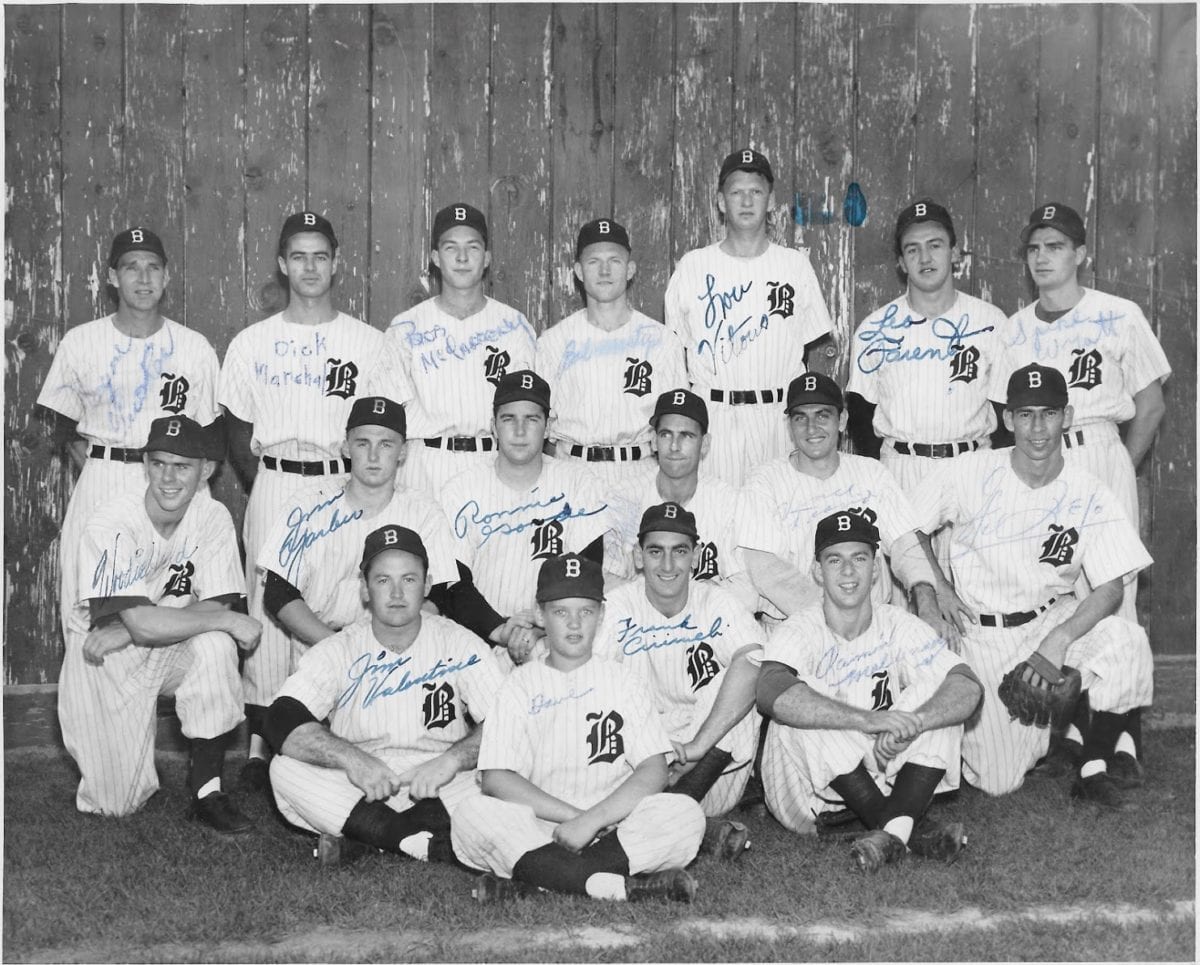
David Underhill loved the “American pastime” sport of baseball, and was once a bat boy for the Boise Idaho Yankees, a class C minor league team affiliated with the New York Yankees. That’s him, front row, center.
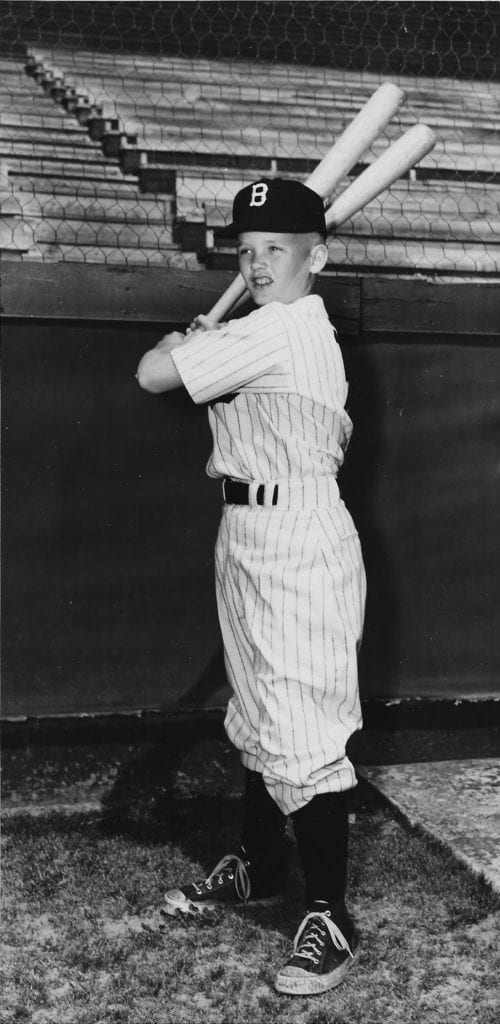
David Underhill loved the American sport of baseball, and was once a bat boy for the Boise Idaho Yankees, a class C minor league team affiliated with the New York Yankees
___
If you support truth in reporting with no paywall, and fearless writing with no popup ads or sponsored content, consider making a contribution today with GoFundMe or Patreon or PayPal.


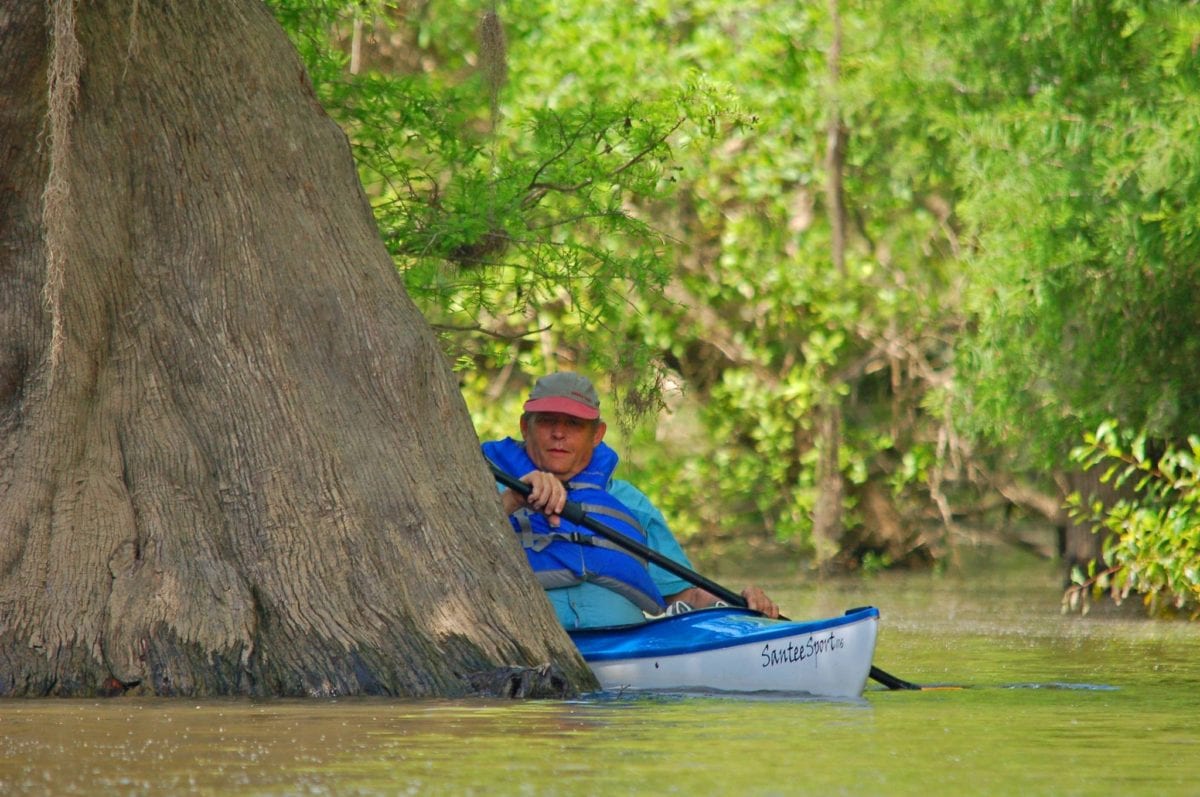
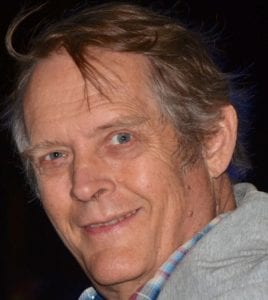
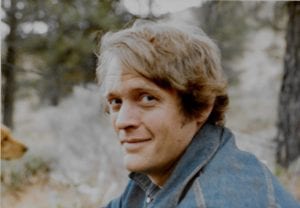
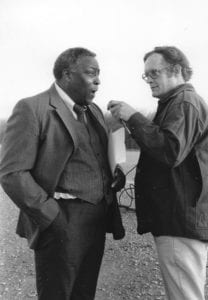
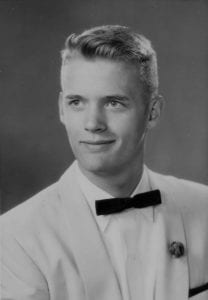












Tremendous human being who will be missed.
In all aspects of his being, David was bright and beautiful. His death is a soul-crushing loss to those of us who loved him.
You once told me when people asked you what David did you would reply, “He’s a scholar and a gentleman”. I though that a near perfect answer.
So sorry this good man is no longer with us. We need excellent people more than ever.
David was a member of the Boise Rocket Research Society (later known as the Experimental Research Society, Inc.) and he helped us recover from a 1956 dust explosion that happened while propellants were being mixed in the basement of my parents’ house on North 16th Street in Boise. David led the investigation and came up with safety rules that ensured subsequent rocket work would be conducted safely. David also served as Vice President and he wrote an interesting article on Lewis Carroll for the Society’s journal.
Some years ago, I had occasion to reread David’s safety report and I was impressed with how much it was like NASA reports I have since read. He was truly one of a kind!